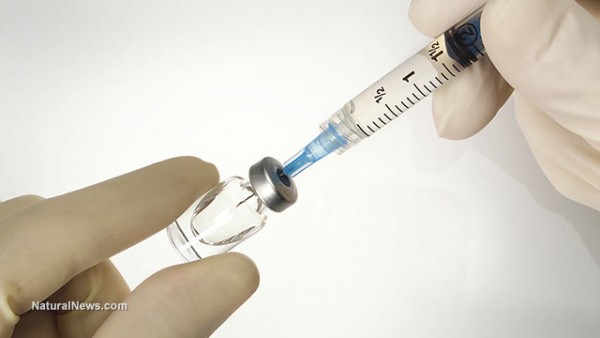Top doctors reveal that vaccines can trigger autoimmunity, turning our immune systems against us
12/08/2016 / By Vicki Batts

Dr. Yehuda Shoenfeld is an Israeli clincian who has been extensively studying the human immune system for more than thirty years. Some say he is at the pinnacle of his profession, and that he is at the core of its foundation. He’s written 25 textbooks on the subject — some of which are key to the backbone of clincial practice. Dr. Shoenfeld has even been referred to as the “Godfather of Autoimmunology.” Autoimmunology is the study of the immune system when it is has turned against itself, resulting in a myriad of conditions including ulcertive colitis, multiple sclerosis and type 1 diabetes.
Lately, Dr. Shoenfeld has been shaking up the world of immunology with evidence that suggests that vaccines may indeed be playing a role in the onset of autoimmune disease. Specifically, some of the star ingredients found in vaccines — like aluminum, a toxic metal — are likely at the helm of the worldwide increase in autoimmune disorders. Evidence supporting this theory has been mounting over the last 15 years, but a noticeably stark increase in research has occured in the last five years. For example, recent study, authored by Dr. Shoenfeld and his colleagues, was published by the journal Pharmacological Research in 2015. In their report, the researchers identified four groups of people who will be most at risk of developing an autoimmune disease following vaccination.
The paper’s authors note that while vaccines may help to prevent illnesses that can cause autoimmunity, “On the other hand, many reports that describe post-vaccination autoimmunity strongly suggest that vaccines can indeed trigger autoimmunity.” The researchers state that “Almost all types of vaccines have been reported to be associated with the onset of ASIA [autoimmune/inflammatory syndrome induced by adjuvants].” The autoimmune diseases that may develop after vaccination include arthritis, lupus (systemic lupus erythematosus, SLE) diabetes mellitus, thrombocytopenia, vasculitis, dermatomyosiositis, Guillain-Barre syndrome and demyelinating disorders. Demyelinating disorders include conditions like multiple sclerosis. Demyelination refers to degradation of the myelin sheath — an insulating material that covers nerves — and results in impaired function of said nerves.
The term ASIA first appeared in the Journal of Autoimmunology a few years ago and is used as an umbrella term to describe a group of similar symptoms that appear after exposure to an adjuvant. Adjuvants are environmental agents, including common vaccine ingredients, that are known to spark the immune system into action. Using ASIA as a model, a massive amount of research has been conducted to begin answering questions surrounding environmental toxins, particularly the metal aluminum used in vaccines, and how they can create an immune system chain reaction in vulnerable individuals, as well as how they can possibly lead to autoimmune disease.
Autoimmune disease is the result of the body’s immune system turning against itself and the human body. When the immune system is functioning normally, it attacks foreign invaders of the body, such as a pathogenic bacteria. In the case of autoimmune disease, however, the immune system has begun attacking the body’s own cells somewhere within the body. In the case of type 1 diabetes, the immune system has targeted the Islets of Langerhans found in the pancreas. In rheumatoid arthritis, the immune system has begun attacking joint tissue. Similar events happen within other autoimmune diseases, but affecting different types of bodily tissues.
Several studies have indicated that the aluminium currently being used in vaccines is a great cause for concern, especially when it comes to autoimmune disease. A 2012 paper authored by researchers from the Neural Dynamics Research Group of the Department of Ophthalmology and Visual Sciences at the University of British Columbia, located in Canada, noted, “According to the US Food and Drug Administration, safety assessments for vaccines have often not included appropriate toxicity studies because vaccines have not been viewed as inherently toxic.”
The researchers note that when combined with the fact that in many developed countries, children are exposed to 126 different antigenic compounds, along with untold amounts of aluminum adjuvants before the age of six, the lack of toxicity studies is even more alarming. The researchers state that children in particular are more susceptible to the toxicity of aluminum adjuvants in vaccines — which have already been shown to have the potential to be harmful to adults. They also note that aluminum adjuvants in vaccines heavily target the areas of the neuro-immune axis related to the immune function and brain development. They commented in their conclusion that the “evidence shows that increasing concerns about current vaccination practices may indeed be warranted.”
Sources:
Tagged Under: Aluminum, Aluminum adjuvants, autoimmune disease, Autoimmune disorders, vaccines




















